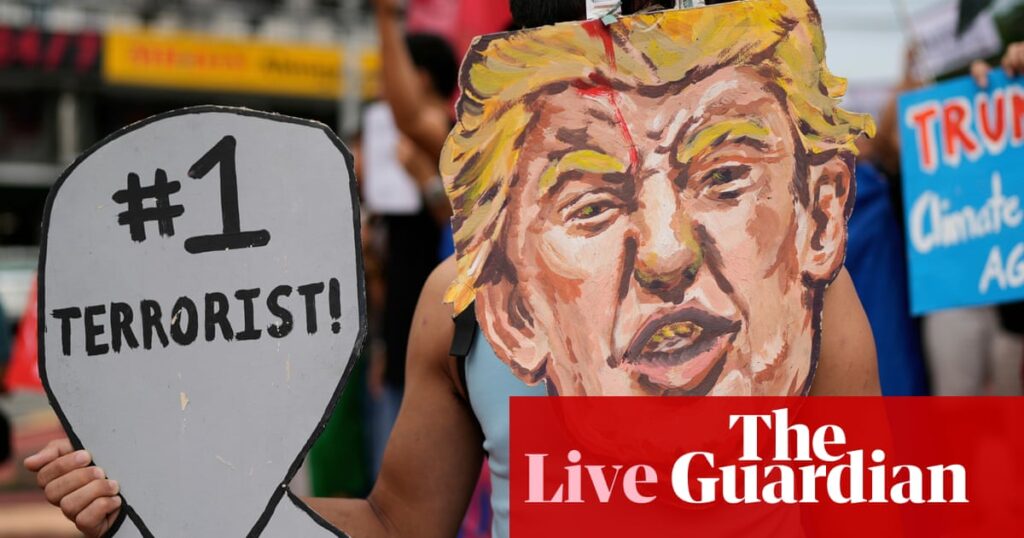
In a significant diplomatic move, Iranian Foreign Minister Abbas Araqchi has arrived in Moscow for talks with Russian President Vladimir Putin. The visit comes at a time of heightened tensions following recent U.S. military strikes on Iran’s nuclear facilities, which have drawn international condemnation and concern over regional stability.
Marjorie Taylor Greene, a U.S. representative from Georgia and a prominent ally of former President Donald Trump, criticized the decision to bomb Iran’s nuclear sites. In a post on X, she stated, “Every time America is on the verge of greatness, we get involved in another foreign war. There would not be bombs falling on the people of Israel if Netanyahu had not dropped bombs on the people of Iran first. Israel is a nuclear armed nation. This is not our fight. Peace is the answer.”
International Reactions and Diplomatic Efforts
The United Kingdom, France, and Germany have issued a joint statement urging Iran to refrain from actions that could further destabilize the region. They have called for Tehran to engage in negotiations that address all concerns related to its nuclear program. “We have consistently been clear that Iran can never have a nuclear weapon and can no longer pose a threat to regional security,” the statement emphasized.
Meanwhile, Iran’s President Masoud Pezeshkian has declared that the U.S. must “receive a response” to its aggressive actions. This sentiment was echoed by Iran’s foreign ministry, which condemned the strikes as an “unconscionable act of aggression.”
Impact on Global Travel and Security
The repercussions of the strikes have extended beyond the immediate region. British Airways has canceled flights between London’s Heathrow Airport and destinations in the Middle East, citing safety concerns. “As a result of recent events, we have adjusted our flight schedule to ensure the safety of our customers and crew,” a spokesperson for the airline stated.
The airline typically operates multiple flights daily to Dubai and Doha, but these have been suspended until further notice. The situation remains under review as tensions continue to simmer.
Military and Strategic Developments
In response to the U.S. strikes, Israel has conducted its own military operations, targeting “dozens” of sites across Iran. These include a long-range missile site in Yazd and other strategic locations. The Israeli military confirmed the strikes, emphasizing their focus on degrading Iran’s missile capabilities.
Iran, on its part, insists that its nuclear program remains intact despite the attacks. The Atomic Energy Organization of Iran (AEOI) reported that while the Fordow, Isfahan, and Natanz sites were targeted, there were no immediate signs of radioactive contamination. The Iranian Red Crescent also reported no casualties, suggesting that the sites had been evacuated in anticipation of the strikes.
Expert Analysis and Historical Context
Experts have weighed in on the potential ramifications of these developments. Dr. Ali Reza, a Middle East analyst, noted that the situation bears resemblance to past conflicts that have escalated due to miscalculations and retaliatory actions. “The region is on a knife-edge, and any misstep could lead to a broader conflict,” he warned.
Historically, the Middle East has been a flashpoint for international tensions, with nuclear proliferation being a particularly sensitive issue. The current situation underscores the ongoing challenges of diplomacy and the risks associated with military interventions.
Looking Ahead: The Path to De-escalation
As diplomatic efforts continue, the focus remains on finding a peaceful resolution to the crisis. The international community is urging restraint and dialogue, with Russia potentially playing a pivotal role in mediating between the conflicting parties.
The outcome of Araqchi’s talks in Moscow could prove crucial in shaping the next steps. As the world watches closely, the hope is that cooler heads will prevail and a path to de-escalation will be found.
The situation remains fluid, and developments in the coming days will be critical in determining the trajectory of this complex geopolitical crisis.






